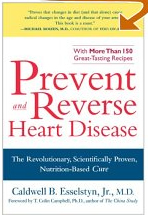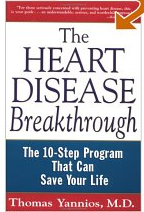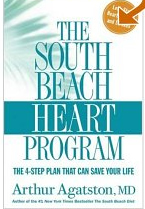Heart Health

Index of Diseases / Health Conditions ... Medicinal Foods, Herbs, Spices & Household Items
The below provides a general overview on this topic and may not apply to everyone. Any treatment protocol should be discussed with a qualified healthcare practitioner ... Please refer to: Medical & Legal Disclaimer.
Relevant Resources:
-
- Alone during a heart attack:
- If you are alone during a heart attack, you only have about 10 seconds before you lose consciousness. Do you know how to save your own life? Click here for info
- Stroke is the leading premature death and long-term disability in the Western world. It can be treated and patients do recover if treated within 4 hours. Death and disability is completely preventable - the problem is people don't recognize the symptoms. There are 4 SIMPLE ways to recognizing whether a person had a stroke. Click here for info
- Alone during a heart attack:
What is a heart attack:
Most heart attacks occur when a clot in the coronary artery blocks the supply of blood and oxygen to the heart, which usually leads to an irregular heartbeat (arrhythmia). This results in a severe decrease in the pumping function of the heart. If the blockage is not treated within a few hours, the heart muscles die.
Did you know?
The importance of preventing heart disease is obvious.
-
- Heart disease is the #1 killer in the United States.
- Heart attacks kill nearly a million Americans a year
- Strokes kill over 160,000 a year
- 64 million Americans suffer from some form of cardiovascular disease (and 39 million of these folks are age 65 or younger)
- By the age of 40, your odds of having coronary heart disease is one out of three if you are a woman and one out of two if you are a man
- Your sibling's medical history may be a better predictor of your chances of developing heart problems than that of your parents. Therefore, it is important to discuss your sibling's health history with your physician.
- Heart disease is the #1 killer in the United States.
Fluid Intake & Heart Disease:
Health Day News reports that people with heart failure tend to retain fluid, which puts additional stress on the heart. Because of this, patients need to monitor what they drink. The physician may prescribe a diuretic to eliminate excess fluids from the body. However, this drug increases thirst - so patients have to be aware off that and carefully monitor how much they drink.
The American Heart Association offers the followinge guidelines for what people with heart failure should drink:
-
-
-
- Talk to your doctor about how much fluid you should have every day.
- Carefully track how much you are drinking. Measure how many ounces each container that you drink from holds.
- Monitor all fluids, including water you use to wash down medicines, as well as fluid sources such as ice cubes, fruits, ice cream and yogurt.
- Do not drink alcohol, which affects the heart's ability to contract.
- Limit your intake of caffeine and salty fluids, such tomato juice and other vegetable juices.
-
-
Factors that raise your risk for heart disease:
-
- Transfats: Eliminate trans fats to cut your risk of heart disease by 50%. High cholesterol is not as dangerous to your health as trans fats and hydrogenated oils.
- Genetics: having a first-degree relative (parent or sibling) who developed heart disease before age 55 for men or age 65 for women
- Age: a man age 45 or older, a woman age 55 or older, or a woman with premature menopause who is not taking hormone replacement therapy
- Lifestyle: Smoking; lack of exercise; being more than 30% over ideal body weight
- Diseases such as high blood pressure and diabetes (diabetes poses as great a risk for heart attack as heart disease itself)
- HDL cholesterol level below 40 mg/dL.
Herbs & Spices:
A study published in the Journal of Medicinal Foods (http://www.ncbi.nlm.nih.gov/pubmed/18598169) found a direct correlation between the phenol content of common herbs and spices and their ability to inhibit glycation and the formation of AGE compounds, making them potent preventers of heart disease and premature aging.
The top 10 most potent herbs and spices are:
- Cloves (ground)
- Cinnamon (ground) (could play the role of an insulin substitute in the treatment of type 2 diabetes)
- Jamaican allspice (ground)
- Apple pie spice (mixture)
- Oregano (ground)
- Pumpkin pie spice (mixture)
- Marjoram
- Sage
- Thyme
- Gourmet Italian spice
Typical Symptoms of Heart Attacks

 Angina
Angina
Angina is a common and serious heart problem that is caused by inadequate oxygen to the heart, which can lead to chest pain or discomfort on exertion that typically goes away with rest. The condition can result from partially blocked heart arteries or decreased flexibility of the cardiac arteries.
According to a new study, the findings of which were published in the March 25 issue of the journal Circulation, women have a 20 percent higher prevalence of stable angina. This conflicts with conventional medical wisdom.
For the new study, Dr. Harry Hemingway, a professor of clinical epidemiology at University College London Medical School in Great Britain, and his colleagues collected data from 74 studies involving 401,315 people living in 31 countries, including the United States. The prevalence of angina varied from country to country. Among women, the prevalence varied from 0.73 percent to 14.4 percent, with an average of 6.7 percent. Among men, it varied from 0.76 percent to 15.1 percent, for an average of 5.7 percent, the study found.
While risk factors for heart disease, such as smoking, differed from country to country, once the researchers compensated for those risk factors, they found that the prevalence of angina was still higher among women. In fact, the prevalence of angina was 20 percent higher overall among women than men. While the study doesn't show that women with angina are under-diagnosed or under-treated, Hemingway thinks that, overall, women with heart disease are less likely to receive appropriate treatment.
"This is consistent with many observations which suggest that women with suspected or confirmed heart disease are less likely to go for further investigation or treatment," Hemingway said. "This study shows that that general issue may be even more important than we suspected."
For Heart & General Health - Read The Labels!
Cathy Fitzgerald, registered dietitian with MFit, the University of Michigan Health System's health promotion division suggests "reading the labels is a great way to be guided toward healthier choices for your heart, and for general reduction of all chronic diseases today." "So think about using the front of the package as well as the nutrition facts on the back when you are out shopping."
Start by educating yourself on what food label language truly means. Fitzgerald offered these tips:
- The claim, "May reduce the risk of heart disease." A company can only put this statement on a food if scientific evidence exists that the U.S. Food and Drug Administration has decided is strong enough to support it.
- Nutrient content claims. The government regulates how a company can use terms such as "high," "low" or "reduced." For example, a food must have 3 grams of fat or less to be considered low fat, and a product that is high in a certain nutrient provides 20 percent or more of the daily value suggested by the FDA.
- Foods with fiber. Fiber helps the digestive system and lowers cholesterol. Look for the claims "high in fiber" or "excellent source of fiber," as these products have at least 5 grams of fiber per serving. A food listed as a "good source" of fiber has 2.5 grams of fiber or more.
- Omega-3 fats. Omega-3 fats have been shown to benefit the heart. Fish such as salmon, tuna, mackerel and trout are good sources of omega fats and are low in saturated fat.
 Sterols and stanols. Plant sterols and stanols are cholesterol-lowering substances often added to products like margarine and salad dressings. Review the label carefully to make sure a product states it offers the cholesterol-lowering benefits of plant sterols and stanols.
Sterols and stanols. Plant sterols and stanols are cholesterol-lowering substances often added to products like margarine and salad dressings. Review the label carefully to make sure a product states it offers the cholesterol-lowering benefits of plant sterols and stanols.- Sodium. Look for phrases like "low sodium" or "reduced sodium." This is especially important in processed and canned foods. If a food is labeled as "reduced" in sodium, it has 25 percent less salt than the regular product.
- Trans fats. Eat trans fats sparingly, as they raise your bad cholesterol and lower your good cholesterol. Fried foods and processed foods that have a long shelf life are often loaded with them. The term "partially hydrogenated oil" on an ingredient's list indicates the food contains trans fats.
- Eliminate trans fats to cut your risk of heart disease by 50%. High cholesterol is not as dangerous to your health as trans fats and hydrogenated oils.
- Saturated fat. Butter, fatty cuts of red meat, and cheese made from whole milk are among foods with the highest amount of saturated fat -- a main dietary cause of high blood cholesterol. Opt for low-fat or non-fat dairy products, lean meats such as loin or round cuts, and liquid margarines instead of butter.
- Avoid High Fructose Corn Syrup: Some studies found that High Fructose Corn Syrup contributes to high cholesterol as it actually scars the internal walls of the arteries. This causes the body to then produce cholesterol to heal the walls of the arteries which is one reason that the plaque builds up on the arterial walls. As the walls are continually scarred this slowly shrinks the opening for blood to flow through making the heart work much harder and eventually wearing the heart out.
For Optimal Heart Health, choose the following food items:
Incorporate heart-healthy foods into your diet:
- Organically grown fruits & vegetables
- Kiwifruit help lower triglyceride levels, and they reduce platelet clumping. The platelet effect could be particularly good for your ticker: Although platelets aid in blood clotting, when these cells stick together too much, it could set the stage for a heart attack or stroke.
- Sweet Potatoes aka Yams: High source of the antioxidant beta carotene, which is linked to preventing heart disease, cataracts, and numerous cancers, and is considered a nutritional boost for eye health ... Nuts are highly valued for its anti-cancer and heart-protective properties.They aid in insulating and storing food for the body and are necessary for the normal utilization of the fat-soluble vitamins, including A, D, E, K.
- Asparagus ... Bell Peppers ... Beans* ... Beets ... Carrots ... Corn ... Cranberries ... Garlic ... Grapes ... Grapefruit ... Shiitake Mushrooms ... Olives ... Papaya ... Peanuts ... Romaine Lettuce ..... Winter Squash ... Swiss Chard ... Tomatoes ... Turnip Greens ... Walnuts
- Health Benefits of Flax Seeds
- 400 to 800 IU of vitamin E daily reduces risk of heart attack by 77%. (Stephens NG et al. Randomized controlled trial of vitamin E in patients with coronary artery disease: Cambridge Heart Antioxidant Study (CHAOS). Lancet, March 23, 1996; 347:781-786.) http://www.ncbi.nlm.nih.gov/pubmed/8622332
- Olive Oil contains phenol - an ingredient that keeps the arteries elastic to be able to adjust to sudden changes in our blood flow, thus potentially preventing a heart attack.
- Nuts & Seed: Walnuts, Almonds, Sesame, sunflower and pumpkin seeds; Walnuts
- Pistachio Nuts & Sunflower Seeds: Researchers discovered that pistachio nuts and sunflower seeds contain unique phytosterols that can block cholesterol from being absorbed into your bloodstream. These phytosterols could also help prevent cancer and heart disease, treat enlarged prostate, and control blood sugar in diabetics.
- Choose whole grains oats for their high fiber content and unique antioxidants
- Cod Liver Oil ... Cold Water Fish (including salmon, tuna, herring, mackerel and halibut for their beneficial omega 3 fatty acids) ... Olive Oil (cold - pressed, instead of other oils)
- Eggs
- Green Tea: A few cups of green tea each day may help prevent heart disease, Greek researchers found. Green tea improves both blood flow and the ability of arteries to relax. A few cups of green tea each day may help prevent heart disease, Other studies have shown that black tea also has benefits for cardiovascular health. However, green tea has higher quantities of beneficial compounds called flavonoids, some of which are lost in the oxidation process that black tea undergoes.
- Flavonoids are also found in cocoa, tomatoes and grapes.
- Coffee & Heart Health
- CoQ10 boosts your physical and mental energy and protects your heart. This antioxidant not only fights free-radical damage, it also drives energy production in every one of your cells and helps keep your heart strong and healthy. As we age, our natural levels decrease over time. By the time we turn 40, our cells have 40% less CoQ10 than we started with. For this reason, supplementing becomes increasingly important.
CoQ10 benefits our health in many ways ...
- Repairing damage to heart muscle
- Protecting the brain from disease and degeneration
- Serving as a powerful antioxidant fighting the free radicals of aging
- Removing dangerous excess iron from your circulation
- Creating the energy your cells need to function
 Typical Symptoms of Heart Attacks (Myocardial infarction)
Typical Symptoms of Heart Attacks (Myocardial infarction)
Men:
- Sudden stabbing pain in the chest
- Cold sweat
- Grabbing the chest
- Dropping to the floor
Female Heart Attacks:
- Nausea
- Extreme Fatigue
- Sensation of indigestion
- Squeezing motions up the spine (the aorta spasming), racing up and under the sternum (breast bone)
- Radiating pain in the jaws
95 percent of all heart attack patients experienced one or more of the below symptoms weeks or even months before the actual heart attack. (Ref. study by the National Institutes of Health [NIH] published in Circulation: Journal of the American Heart Institute).
- Indigestion or nausea - from mild indigestion to severe nausea, cramping and vomiting.
- Jaw, ear, neck or shoulder pain - The pain by, for example, a pulled muscle would persist - but if the pain comes and goes -- then this is something to be alarmed about. Also important to note if the pain moves or radiates upwards.
- Exhaustion or fatigue: 70% of the female participants in the NH study reported suffering from extreme fatigue in the weeks or month before the heart attack. The fatigue was so strong that it basically disabled them.
- Breathlessness and dizziness: More than 40% of female participants in the NIH study reported this problem. They commonly described the feeling: “I couldn’t catch my breath while walking up the driveway.”
- Leg swelling or pain: If the heart doesn't function properly, waste products aren't transported away from tissues and not enough blood is transported into the tissues – which causes swelling and pain.
- Sleeplessness, insomnia and anxiety: The NIH report stated that many of the women surveyed reported feeling a sense of “impending doom” in the weeks before the heart attack, resulting in acute sleeplessness and anxiety.
- Flu-like symptoms: Heart attack patients describe suffering from severe flu-like symptoms before the heart attack, such as persistent wheezing or chronic coughing that wouldn't resolve itself. It is important to note that they didn't have any fever that is typically associated with the flu. If you are experiencing flu-like symptoms (without fever) for extended periods, you may want to talk to your doctor.
- Rapid-fire pulse or irregular heart rate that isn't brought on by exertion can be a very important sign that there is a serious problem that needs to be resolved. Discuss with your doctor straight away.
GreenAndHealthy.Info strives to maintain accurate and up-to-date information; however, mistakes do happen. If you would like to correct or update any of the information, please send us an e-mail. THANK YOU!

